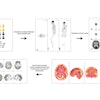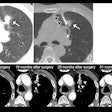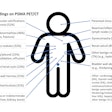Dear Residents Insider,
After residency and fellowship, finding a job is what it's all about: a job to put those long years of study to use serving patients; a job to start paying back those monster student loans.
Finding the right one isn't easy in today's market, of course. But in our inaugural edition of the Residents Insider, we look at what residents and fellows can do to boost their chances of finding work they love in a place where they can envision making a life.
You'll want to start your search early -- and if you didn't start early, start now, advised Dr. Jocelyn Chertoff from Dartmouth-Hitchcock Medical Center in Lebanon, NH. Dr. Chertoff knows the ins and outs of radiology employment in tough times, and at an RSNA meeting session, she reminded today's candidates that it's not the first difficult job market and it won't be the last. Check out a wealth of timely tips for improving your chances in our Insider Exclusive.
Residents aren't the only ones scrambling to succeed in a tough environment. Residency program directors are just now figuring out how they'll deal with the wholesale changes in radiology certification that are beginning in earnest this year. A major question they're asking is how to balance limited program resources between core residents in years 1 through 3 with those of a new, more autonomous breed of fourth-year residents who want very specific things. A survey of program directors brought up a lot of great ideas for making residency programs work for everyone. For the details, click here.
In a world dominated by economics, where does medical professionalism enter the picture? Everywhere and on every level, according to a talk by Dr. Ethan Halpern from Thomas Jefferson University. Medical professionalism is now a core competency mandated by the Accreditation Council for Graduate Medical Education, but it's not as straightforward as, say, medical physics, so how do you teach it and test for it? What do you tell your residents about the practice of medicine and about the conflicts that will inevitably arise? Get some ideas here.
Finally, what you post on Facebook can hurt you, say experts who asked professionals in charge of reviewing residency applications. Whatever one thinks about the propriety of sniffing around applicants' social media postings, the study made it clear that decision-makers don't feel that someone's social media pages should be off limits. Learn how to protect yourself by clicking here.
Please click the links below for more news affecting radiology residents, fellows, program directors, and others involved in the noble task of becoming a radiologist. You can stay ahead of the game by staying tuned to your Residents Digital Community.















